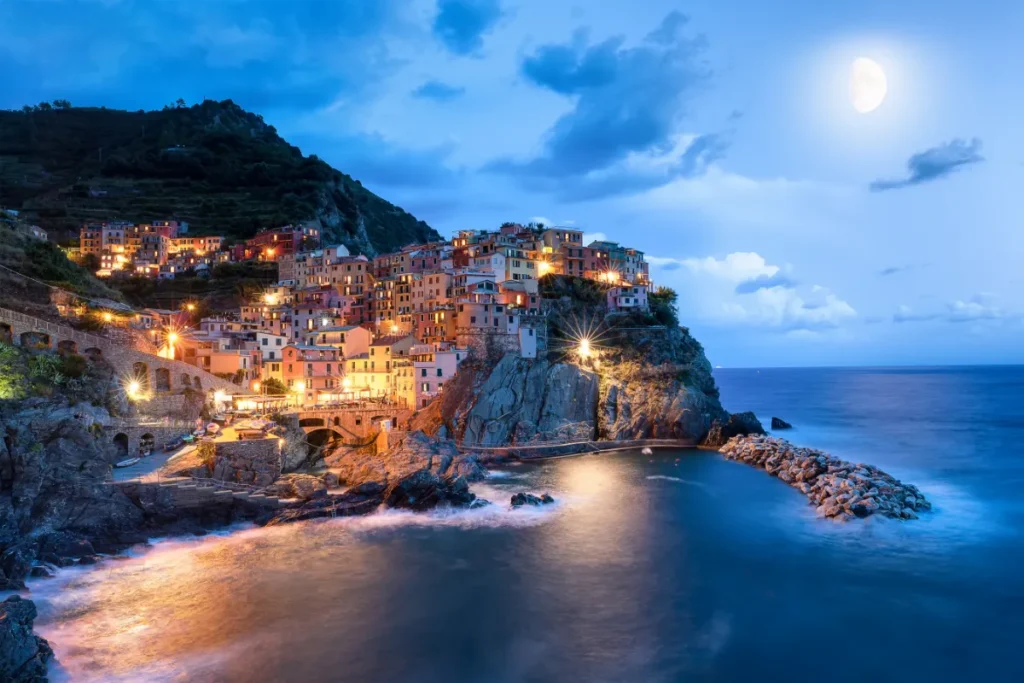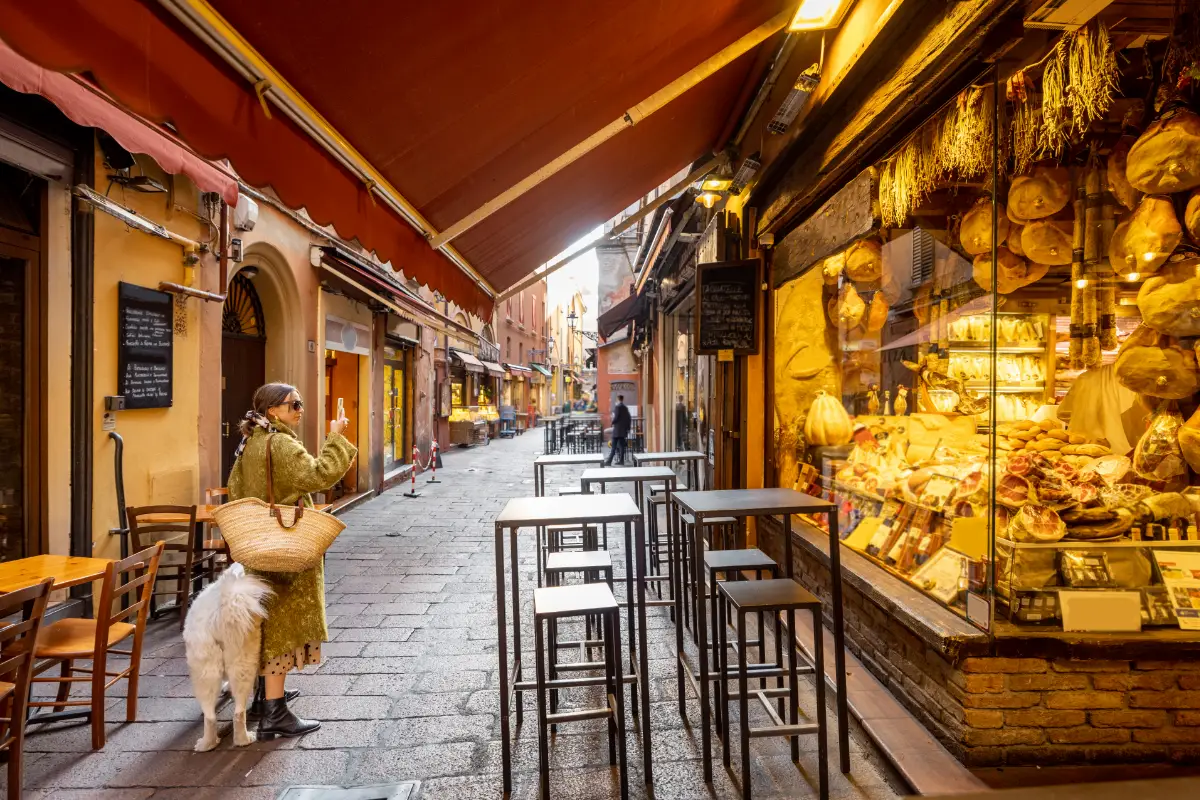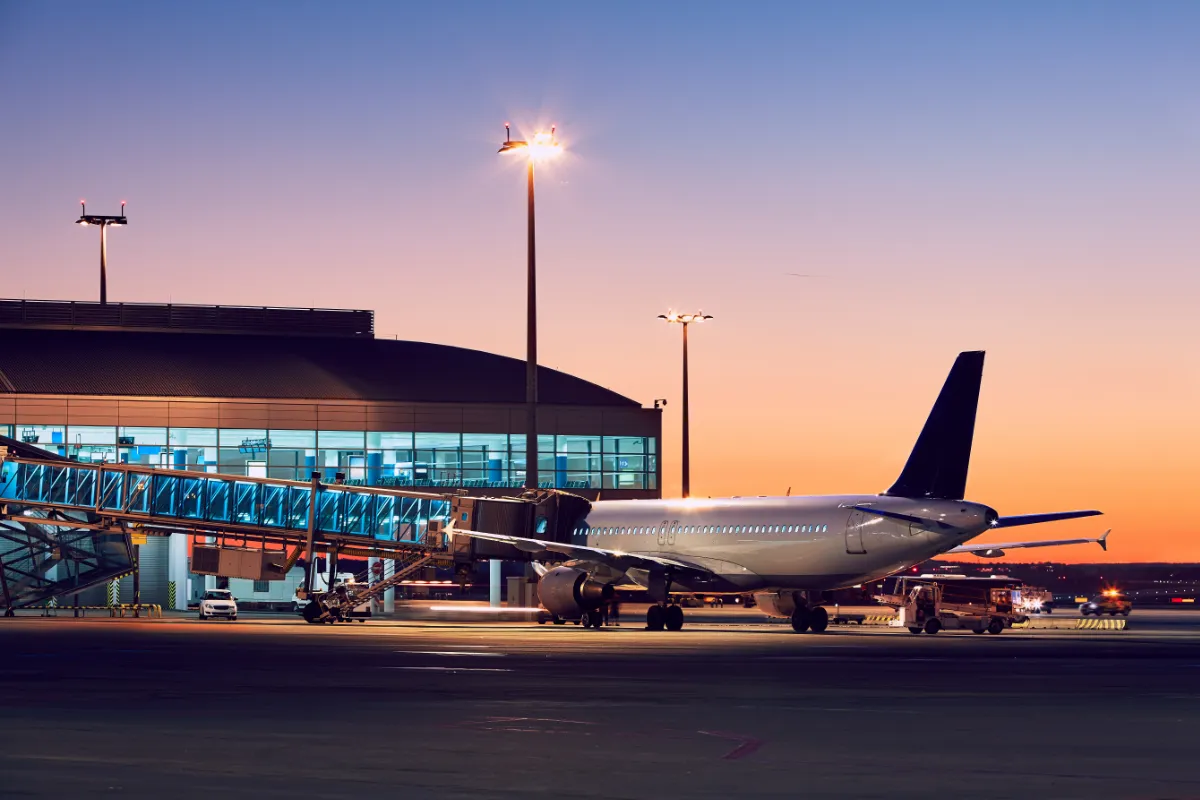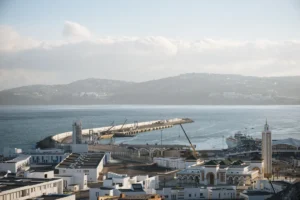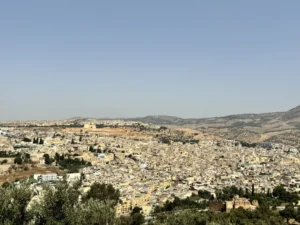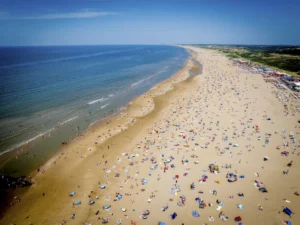A 15-day tour of Europe offers a unique opportunity to explore several iconic cities in a limited time. This trip includes visits to destinations such as Madrid, Paris and Rome, where culture and history can be appreciated. In addition, the itinerary allows you to enjoy culinary experiences and learn about the local cuisine. Each city offers optional activities, visits to monuments and free time to get to know unique corners.
Planning the Tour of Europe in 15 Days
Planning a trip to Europe requires attention to several essential aspects. It is important to consider factors such as duration, cities to be visited and travel requirements.
Why choose a 15-day tour?
Opting for a 15-day tour offers the opportunity to explore multiple destinations without the need to rush. This duration is ideal for enjoying a mix of sightseeing and leisure time, allowing travelers to soak up the culture and ambiance of each location. Some benefits of this approach are:
- In-depth exploration of each city.
- Plenty of time for optional activities and excursions.
- Opportunity to see both iconic sites and lesser-known corners.
Advantages of packages to Europe
Travel packages offer several advantages that can enrich the tourist's experience. Some of the most relevant ones are listed below:
- Predefined itineraries that facilitate planning.
- Discounts and special rates on lodging and transportation.
- Access to local guides who provide knowledge and cultural context.
- Convenience of having everything organized, reducing traveler's stress.
Considerations for travel to Europe from Mexico
Traveling from Mexico to Europe involves certain important considerations that must be taken into account when planning the trip. Some of the most relevant include:
- Necessary documentation: Make sure your passport is valid and ask about visas or specific requirements to enter certain countries.
- Health: It is advisable to have travel insurance that covers medical emergencies.
- Budget: Determine an appropriate budget that includes lodging, meals, transportation and activities.
- Best time of the year: Research the weather conditions of the cities to be visited and determine the high or low season for tourism.
Suggested Itinerary
The suggested itinerary offers a well-structured tour of several of Europe's most emblematic cities, combining culture, history and leisure time. Below are the main cities and activities that make up this unique experience.
👉 Would you like to customize your trip? Learn how you can do it and read our article 👈
Main cities along the route
Madrid: Gateway to Europe
Madrid, the vibrant capital of Spain, is the first destination on this tour. With its rich history and vibrant urban life, it offers a variety of tourist attractions. Among them, highlights include:
- Stroll through Puerta del Sol and experience the pulse of the city.
- Visit the majestic Plaza Mayor, ideal to enjoy a tapa or a coffee.
- Explore the Royal Palace, the official residence of the Spanish kings.
Paris: The city of love and culture
Paris, known as the capital of art and fashion, is the next destination. This city dazzles with its architecture and cultural offerings. Some of the unmissable visits are:
- The iconic Eiffel Tower, a symbol of the city.
- A boat trip on the Seine River, enjoying panoramic views.
- Explore the Louvre Museum, home to masterpieces such as the Mona Lisa.
Rome: Italian history and charm
Rome, with its rich cultural heritage, closes this cycle of major cities. Its historical legacy and magical atmosphere are unparalleled. Visitors should consider:
- A visit to the Colosseum, testimony of the ancient Roman Empire.
- The mystical Vatican City, where the Sistine Chapel is located.
- Stroll through the Roman Forum, a journey through ancient history.
Highlights in each city
Must-see museums and monuments
Each city offers a vast selection of museums and monuments that are essential to understanding its history and culture.
- In Madrid, the Prado Museum is a must for art lovers.
- Paris offers the Musée d'Orsay, known for its collection of impressionist art.
- Rome is home to the Vatican Museum, known for its impressive collection of Renaissance art.
Unique cultural experiences
Immersion in the local culture is key to a meaningful experience. This may include:
- Attend a flamenco party in Madrid, living it up close.
- Enjoy a gourmet dinner in a Parisian bistro.
- Participate in an Italian cooking class in Rome to learn traditional recipes.
Optional activities and excursions
To further enrich the trip, there are several optional activities available. These may include:
- A tour of the Palace of Versailles, departing from Paris.
- Excursions to the Tulip Fields in Amsterdam during the spring season.
- Visits to wineries in the Bordeaux region, if you wish to extend the itinerary.
Lodging and Amenities
The choice of accommodation is a crucial factor in ensuring a pleasant travel experience. Europe offers a wide variety of options to suit the different tastes and budgets of travelers.
Europa hotels: options for all budgets
Hotels in Europe vary significantly in price and quality. From cozy hostels to five-star luxury, there is something available for every traveler. Major cities offer accommodations that integrate comfort and accessibility, making it easy to get to the most important tourist attractions.
Recommended hotels in Madrid
- Hotel Gran Vía: Located in the heart of Madrid, it offers modern rooms and quick access to points of interest such as Plaza Mayor and the Royal Palace.
- Hostal La Latina: Ideal for those looking for a cheap place without sacrificing quality. Located in a vibrant neighborhood, perfect to enjoy the local gastronomy.
- Hotel Ritz Madrid: For those who prefer luxury, this emblematic hotel stands out for its elegance and impeccable service, right next to the Retiro Gardens.
Lodging in emblematic neighborhoods of Paris
- Le Marais: Historic area with numerous cafes and boutiques, ideal for an authentic Parisian experience.
- Montmartre: With its bohemian charm, it offers lodging options with breathtaking views of the city.
- Saint-Germain-des-Prés: Known for its artistic atmosphere, it allows easy access to museums such as the Louvre and the banks of the Seine.
Central options in Rome
- Hotel de Russie: This luxurious hotel has a beautiful internal garden and is located near Piazza del Popolo.
- Navona Gallery & Garden: Offers charming rooms in the heart of Rome, ideal for exploring the wonders of the city on foot.
- Hostel Alessandro Palace: Perfect for young travelers, it offers a social atmosphere and is an excellent starting point for visiting the Colosseum and other important sites.
Additional services for a comfortable stay
Hotels and accommodations in Europe often offer a variety of services that enhance guests' stay. These may include:
- Free Wi-Fi in all areas to stay connected with ease.
- Breakfast included, allowing travelers to start the day with energy and local flavor.
- Free transportation to the airport or main stations for more convenient transfers.
- Gyms and spas, ideal for those looking to relax after a day of exploring.
- Multilingual staff available at the front desk to help with any questions or tourist recommendations.
These services contribute to a smoother and more pleasant experience, allowing travelers to concentrate on enjoying their European adventure.
Gastronomy and Culinary Experiences
European gastronomy is a reflection of its cultural diversity. Each country offers flavors, ingredients and traditions that enrich the travel experience. Exploring local food becomes an essential part of any tour of the Old Continent.
Discovering local gastronomy
European cuisine is famous for its variety and quality. From traditional dishes to haute cuisine, each region has something unique to offer. The flavors of Europe are a fusion of history, culture and culinary creativity.
Not to be missed restaurants in Europe
- Spain: In Madrid, the restaurant Casa Lucio is known for its delicious tortilla de patatas. Another outstanding place is La Ardosa Wineryfamous for its tapas.
- France: In Paris, Le Procope is the city's oldest café, famous for its coq au vin. Other iconic places include Les Deux Magotsa meeting point for artists and writers.
- Italy: In Rome, Da Enzo at 29 offers authentic homemade pastas. Trattoria Da Teo is another popular place for its pizza and seasonal dishes.
- The Netherlands: In Amsterdam, Restaurant Greetje is ideal for tasting the local cuisine, while From Kas offers a menu based on fresh ingredients grown in its own greenhouse.
- Germany: In Berlin, the Zur Letzten Instanz is the oldest restaurant in the city, famous for its roast suckling pig and currywurst.
- Hungary: In Budapest, the restaurant New York Café is not only known for its history, but also for its apple strudel and classic Hungarian dishes.
Typical dishes by country
- Spain: Paella, tapas and churros with chocolate are essential. These dishes reflect Spain's rich gastronomic culture and social life.
- France: Ratatouille, foie gras and croissants are just some of the delicacies that make French cuisine one of the most appreciated in the world.
- Italy: Lasagna, risotto and gelato are unforgettable classics that everyone should try during a visit to Italy.
- The Netherlands: Raw herring and stroopwafels stand out as some of the delicacies that can be enjoyed in Amsterdam.
- Germany: The sauerbraten and the pretzel are examples of the rich German gastronomy that surprises many travelers.
- Hungary: The goulash and lángos are not to be missed, showing the essence of Hungarian flavors.
Culinary experiences within the tour
Tours to Europe often include culinary experiences that allow travelers to immerse themselves in the local food culture. These experiences may include:
- Typical dinners: Taste traditional dishes in selected restaurants, enjoying an authentic atmosphere.
- Cooking classes: Participate in workshops to learn how to prepare local recipes, which offers a fun way to connect with the culture.
- Visits to local markets: Exploring food markets can be a delight for the senses, discovering fresh ingredients and regional products.
- Wine tastings: In wine regions of France or Italy, tours may include tastings in wineries, offering a glimpse into the winemaking tradition.
Practical Tips for Traveling to Europe
Planning a trip to Europe requires careful preparation. Knowing the requirements, the best times to travel and the terms of organized travel is essential to ensure a smooth and enjoyable experience.
Travel and passport requirements
It is essential that passports are valid. Most European countries require that the passport be valid for at least six months after the date of return to Mexico. It is also advisable to take into account the following aspects:
- Check if a visa is required to enter the country. Many countries allow entry to Mexican citizens for a short period of time without a visa, but it is always advisable to consult the specific regulations of each nation before traveling.
- If you plan to visit several countries in Europe, it is beneficial if your passport is in a legible format, without scratches or damage. This facilitates the process at border controls.
- It is advisable to always carry a digital and physical copy of your passport. This can be useful in case of loss or theft.
Best times for a 15-day tour
The best times to travel to Europe vary according to personal preferences and the type of experiences sought. There are different considerations:
- Spring (March to May)This is one of the best seasons to visit Europe. The days begin to lengthen, the weather is milder and there are fewer crowds, resulting in a more pleasant experience.
- Summer (June to August)Although it is high tourist season and the days are longer, temperatures can be very high, especially in southern Europe. It is important to be prepared for crowds and higher prices.
- Fall (September to November)Fall: This is another ideal time to travel. Temperatures are pleasant, tourist activity begins to decrease and there are beautiful autumn colors, especially in regions such as the south of France and Germany.
- Winter (December to February)Although many places may be less accessible due to the cold weather, it is a magical time to enjoy Christmas markets and festivities in various cities. Rates are usually lower compared to the high season.
Check out our all-inclusive packages to Europe
- Flanders and the Netherlands (8 days)
- London, Paris and Disneyland Paris (9 days)
- Italy, Côte d'Azur and Barcelona (11 days)
- Central and Imperial Europe (12 days)
- London, Paris, Alps and Italy (13 days)
- Classic Europe (13 days)
- Grand Tour of Europe (16 days)
Terms and conditions of package tours
When opting for an organized trip, it is important to read and understand the terms and conditions. Some key points include:
- Review the cancellation policy. Most agencies have specific conditions regarding refunds and itinerary changes.
- Understand what is included in the travel package. This can range from accommodations to some meals, museum entrance fees and guide services.
- Be aware of travel insurance requirements. Some agencies require passengers to have insurance to cover eventualities during the tour.
- Consult the baggage regulations. Each airline may have different restrictions on the weight and number of bags allowed.
Frequently Asked Questions about the 15-Day Tour
This section addresses the most common questions that arise when planning a 15-day tour of Europe. The information is designed to help travelers clarify their concerns and facilitate their experience on the continent.
Common questions and solutions
There are many concerns that can arise when planning a trip to Europe. Below are the most frequently asked questions along with helpful answers:
How much money should I bring for the tour?
The recommended amount of money varies according to the style of travel. It is suggested to carry a daily budget of between 70 and 150 euros to cover food, transportation and activities. It is advisable to carry a credit or debit card for payments, as well as cash for small purchases.
What happens if you miss a flight or train?
It is crucial to have travel insurance to cover these eventualities. In case of missing a flight or train, contact the transportation agency or service immediately to find alternatives and reschedule the trip.
Is a visa required to enter Europe?
Mexican citizens do not need a visa for short stays in most European countries. However, it is important to check the specific requirements of each country you plan to visit and to have a passport valid for at least six months after the date of return.
Local guide to get to know the continent
Having a local guide during the trip can be very useful. Here are some reasons why it is recommended:
- Local guides usually have a deep knowledge of the culture and history of each place, which enriches the experience.
- They facilitate integration into local activities and can offer recommendations on non-touristy places worth visiting.
- They help translate and deal with language barriers, which can be beneficial in some less touristy destinations.
Offers and promotions available
For those interested in maximizing their budget, there are several offers and promotions to consider:
Group packages
Packages often offer significant discounts when traveling in a group, which can be a convenient option for families or friends.
Early booking discounts
Some travel agencies offer attractive discounts if booked months in advance. This may include lower rates on lodging and transportation.
Tourist cards
Several cities offer cards that allow access to museums, public transportation and attractions at reduced prices, and include additional benefits such as skipping lines.

